Being one with nature does a lot to relieve your stress. Passing through a forest trail can be a challenge enough when you don’t have the right shoes, but it can be even more difficult if you don’t have the right protection against biting insects such as chiggers and ticks.
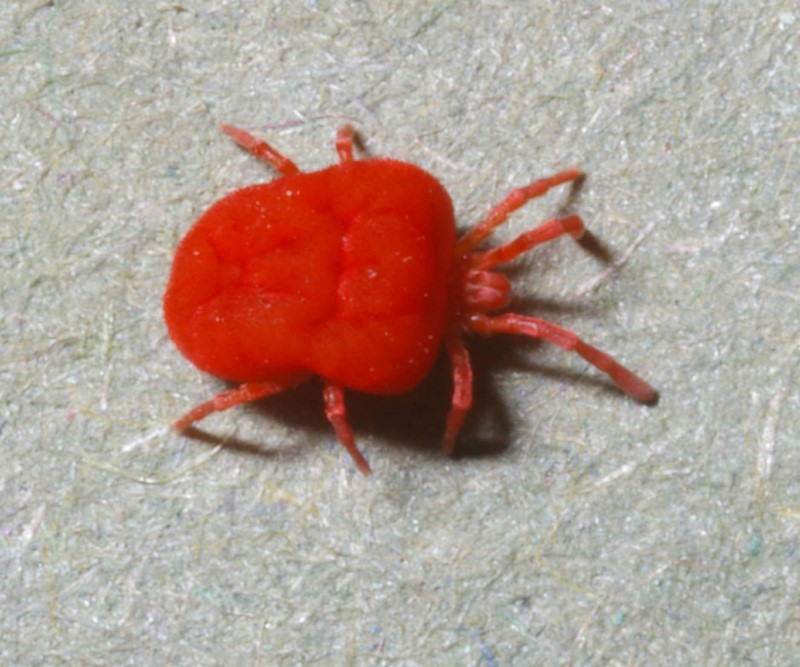
When you go hiking and something bites you, how do you know if it is a chigger bite or a mosquito bite? Well, before you identify the bite, you need to know what chiggers are.
Chiggers are annoying and terrible at the same time. People who have encountered them before shudder just at the mere mention of them. They are tiny insects that are not that easy to detect, especially when they are on you already. Once you become a victim of chigger bites, you will never forget them. Once they itch, you would give anything and everything just to make it stop.
Chiggers are young mites. They are the parasitic larvae of known mites of the genus Trombicula, class Arachnida. This indicates that they belong to the group of spiders and ticks. Chigger mites undergo four specific developmental stages—the egg stage, the larva stage, the nymph stage, and the adult stage. The nymphs and adult chiggers have eight legs, while their larvae have six. Chiggers are red, but they turn yellow when they are full of blood. You can confuse them with ordinary mites because of their size and appearance. Adult mites and their nymphs do not bother people. They only feed on smaller insects, insect eggs, and decaying plants. In fact, they are beneficial organisms because they feed on potential pests.
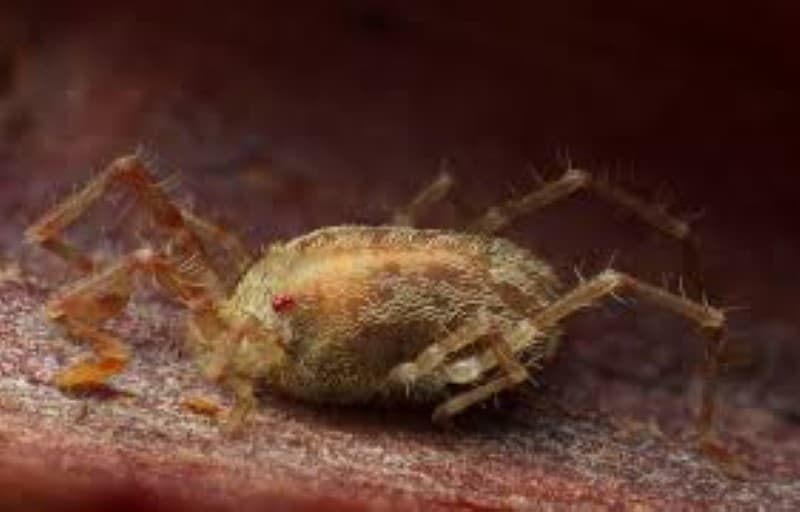
The adult mites spend winter under leaf litter, in the soil, or in any place that is covered and protected. When the temperatures rise in the spring, the female adult mites deposit their eggs on areas that are damp and thick with vegetation. The moment the eggs hatch, the suffering starts. The hungry chiggers crawl up to the surface of the vegetation and wait for the unsuspecting wildlife, pets, and people to pass by. If You brush against, or even sit down on vegetation that is filled with chiggers, these larvae will waste no time crawling up on your skin. The first thing they do is look for a place to hide. Chiggers are just 1/150 of an inch in diameter. It is highly unlikely that you feel or see them at all.
Ticks, on the other hand, are small arachnids, classified as parasites. They suck your blood, but they are just about the size of a rice grain. They are dark colored parasites that take blood from all animals and even humans. Like chiggers, they are common in humid and warm climates. They can also be a bane to wild animals, pets, livestock, and hikers. Ticks burrow into your skin and carry certain diseases such as Rocky Mountain Spotted Fever and Lyme disease.
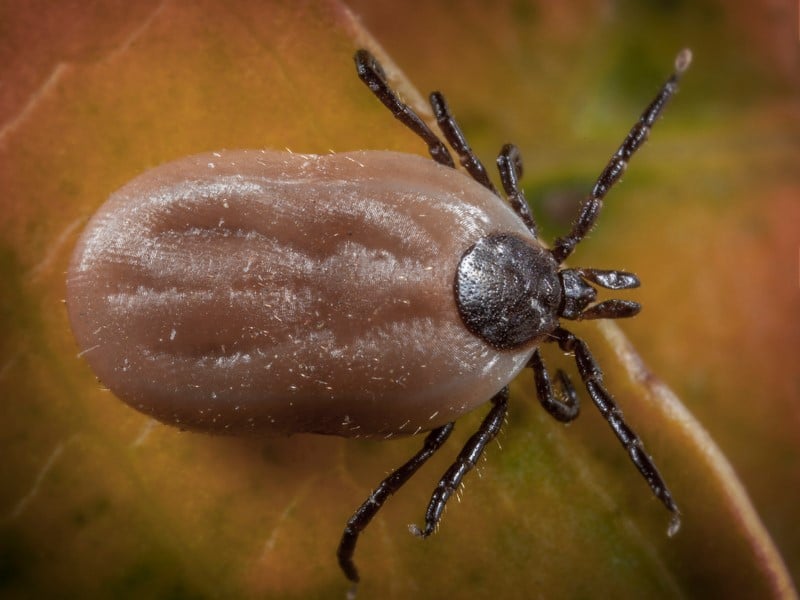
Remember that chiggers settle under tight clothes. They often end up in your waistbands or socks. They love to target your crotch, the back of your knees, and your armpits. Once they find the perfect location, they pierce the skin with their specialized mouth parts and inject it with a digestive enzyme that degrades body tissue. Once the tissues are liquefied, the chiggers start to feed. They begin to suck your blood, just like ticks or mosquitoes.
Chiggers remain attached to their host for several days as they feed. They detach and drop to the ground when they are full enough. This signals the start of the nymph stage. Most people find chigger bites very irritating and bothersome. The intense itching is usually answered by intense scratching, which interrupts the chiggers from getting all the blood that they need.
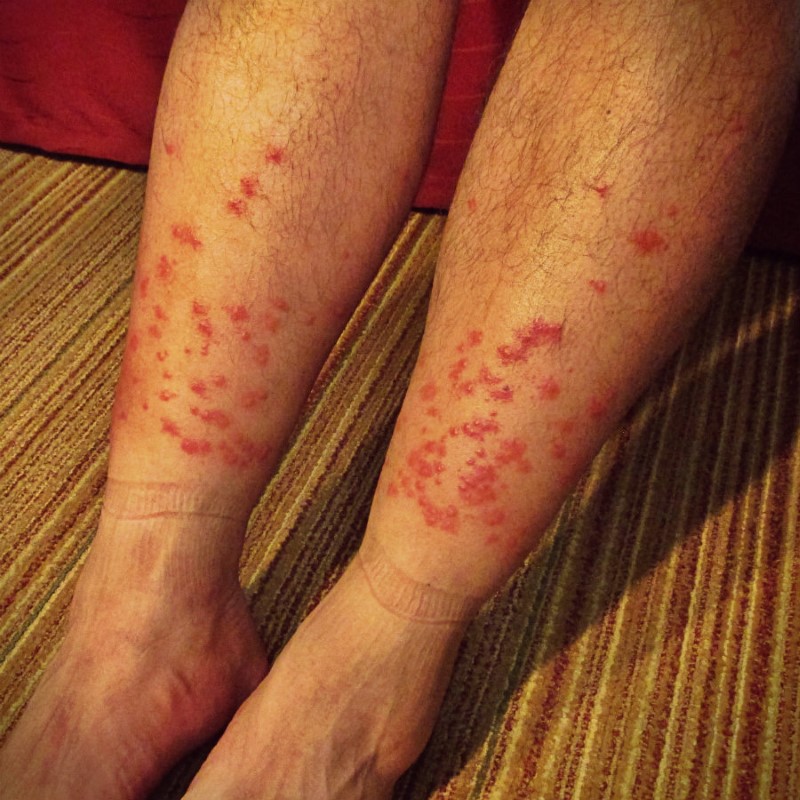
Adult female ticks (hard ticks) attach to their host to feed for a span of hours to a number of days. They need to suck blood to feed their young. they can live for at least a year without their blood meal. Ticks bite usually during the summer, in locations where there are many birds or animals. You need to remove the tick as soon as you see it attached to your skin or clothes. Be sure to remove the head, which carries the infection into your system. Ask your healthcare provider is you need a tetanus shot after the tick head had been removed.
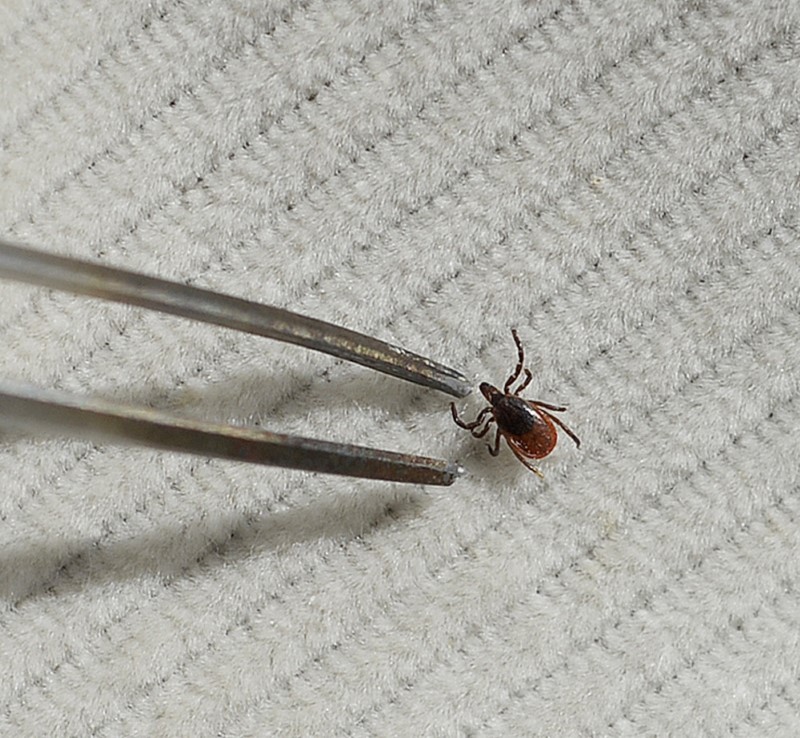 Are They Chigger Bites or Mosquito Bites?
Are They Chigger Bites or Mosquito Bites?
So, how do you know if you have been bitten by chiggers and not mosquitoes? Below are some of the differences between mosquito bites and chigger bites:
- Mosquito bites have just one color, without the pimple-like bumps. Chigger bites have pimple-like, red bumps at the center of their bites.
- Mosquito bites can infect you with viruses such as the West Nile virus, malaria, encephalitis, and Zika. Chigger bites do not transmit diseases.
- Mosquito bites itch after the bite itself. Chigger bites are painless, but after several hours, terrible itching shall begin.
- Mosquito bites target any exposed skin. Chiggers crawl under your clothes. They gravitate to the thinnest skin layers (on ankles, armpits, your crotch, back of the knees, and the waist).
Preventing Chigger and Tick Bites
If you have not had the privilege of being bitten by ticks or chiggers, then consider yourself blessed. What you should do is to follow every conceivable precaution to avoid being bitten. Here are a few rules to consider:
- Keep away from their habitat.
- Wear protective clothing and use all natural repellents ward them off.
- Wash your body and your clothes after engaging in any outdoor activity where chiggers might have been encountered.

You can find chiggers in berry patches, woodland edges, weeds, and even in bushy or tall grasses. They may be absent in one area and then abundant in another. They are more common in places that are damp during daytime. They are inactive below 60 degrees Fahrenheit and over 99 degrees Fahrenheit. They are active during the summer at temperature of 70 to 80 degrees Fahrenheit.
Chiggers also bite exposed skin, like mosquitoes and ticks. When the rashes stop at the line where the legs meet the underwear, you can be certain that these are bites from chiggers.
You can find ticks in thick, grassy areas or in thick vegetation in the woods. It is best if you stay away from these places when you are hiking.
When Chiggers and Ticks Bite You
Here are some useful steps in preventing and treating chigger bites:
- Wear tight, woven clothing that cover a large percentage of your body. It should have minimal openings.
- Apply repellents on your clothes before entering chigger and tick infested areas.
- If ever you see or feel chiggers or ticks on your skin, try your best to remove them immediately. The intensity of the itch depends on how long the chigger ot tick stays on the skin.
- Bitten or not, bathe after your chigger or tick exposure.
- Never scratch your chigger or tick bites. The chance of infection increases when you do this. Scratching keeps the bites exposed and open. This prevents the wounds from healing quickly.
- You can take corticosteroids or antihistamine lotions or creams to ease the pain.

Avoiding Chigger and Tick Bites When You are Hiking
Chiggers, also known as red bugs, are not insects at all. They are the larva of mites. You can say that they are baby mites. Chiggers can be located outdoors in areas like those areas in which you can find ticks. You don’t have to worry about getting sick from chigger bites because they do not transmit diseases, though they are long lasting and very itchy.
Avoiding these chigger bites require familiarity with the behaviors and habitat of chiggers. This is the only thing you need to do since you cannot see chiggers with your naked eye. Read on and find out how you can avoid chigger bites as you enjoy your nature hike:
- Plan to go where there are no chiggers or ticks. Avoid places where chiggers and ticks are usually found. They thrive and survive in places with abundant moisture and warmth. Do not walk through weeds, brushes, and tall grass. Stay away from wooded habitats, marshes, and swamps that have rotten stick piles and leaves. These parasites usually lie and wait in low shrubs and in underbrush to attach themselves to small animals, which are their common hosts. Avoid vines and bushes that might be in contact with your clothes or body. They may deposit the chiggers and ticks.
- Be careful where you sit. During summer months, avoid lying or sitting directly on the ground. Always bring a blanket or a folding chair. Do not perch on logs or stumps. Instead, sit on a hot and dry object such as a rock that is or has been exposed to the sun.
- Dress up properly. You should wear long pants and long sleeves when you know you’re in a chigger or tick infested habitat. Choose those with woven fabric that has minimal openings. They provide more protection. Please make sure that you tuck your shirt into your pants to keep your skin from being exposed. Take note that chiggers attack the area of your waistband, crotch area, ankle skin, back of your knees, and your underarms. You should keep these areas protected. Always wear socks and shoes to avoid tick chigger bites on your ankles and feet. It is best for you to tuck your shirt in your pants and wear high socks when you go to a swamp or a marsh. Doing so will keep chiggers from crawling onto your ankles.
- Use a barrier such as a repellent. Purchase a repellent that contains permethrin or DEET (diethyl meta-toluamide). You can acquire them from camping supply stores. Spry it around your waist, on your ankles, and on your feet to prevent chiggers from crawling under your clothes. You can apply DEET on your skin or clothes. If you do apply DEET on your skin, you need to wash it off as soon you make it indoors. Permethrin should only be sprayed on your clothes. Make sure you follow the instructions carefully when you use DEET and permethrin. Permethrin can bring about itching and burning once it comes in contact with your skin. If you leave DEET on your skin for hours, it can also irritate. These two repellents are not known to be either non-carcinogenic or carcinogenic. Search for sprays or lotions that repel red bugs or chiggers, mosquitoes, and ticks. Apply sulfur on your clothes, if you are not comfortable with using DEET or permethrin. Sulfur on your clothes will make you smell like rotten eggs. You can purchase sulfur from any feed store, pharmacy, or nursery.
- Shower after your exposure to a chigger environment. Once you come inside, take a warm or hot shower or bath, especially if you know you have been in a chigger-infested area. Doing so will wash off chiggers that may have attached to your clothes or skin. Rub your skin with a towel while you bathe. This helps remove chiggers. Also, wash your clothes, so that you can get rid of any remaining chiggers from your clothing.
 Understanding Chiggers
Understanding Chiggers
Given are some of the things you need to know about chiggers:
1.Chiggers congregate. You may think that your collection of chigger bites is caused by just one chigger biting you repeatedly. That is not the case. Chiggers just bite once and suck your blood. They won’t let go until they are full. You have a lot of chigger bites because you have many chiggers on your skin.
2.Chiggers do not dig into your skin. Because they do not burrow into your skin, you can treat your skin with bleach or nail polish to suffocate the bugs. They are easy to remove especially if you wash with warm and soapy water. You can treat the itchiness with sealant-antihistamine like Caladryl, baby oil, or petroleum jelly.
3.Chigger control is only applicable for a heavy infestation. Apply chigger control if you have a heavy infestation in your yard, but it is not a long-term solution. Long lasting chigger preventive involves the following:
- Prune your shrubs and trees to let moving air and sunlight into your yard.
- Cut down the lawn down to its shortest height, so sunlight can hit the soil.
- Provide a clear walkway that has no plants.
- Weed regularly and remove debris and piles that harbor rodents and other small animals, which also serve as easy hosts to chiggers.
4.Chiggers can be stopped with the right clothes. Just tuck your shirt in your pants and your pants in your socks. Make sure that you also wear a shirt with long sleeves. Wear boots and, woven and loose-fitting clothes. Get a repellent that targets chiggers. This kind of preparation will help protect you once you enter a chigger-infested area.
5.Chiggers can spread out. You can bring roaming chiggers into your home and property. If you do not wash your clothes and shoes immediately with warm and soapy water. Any chigger that has not latched on to an available host will continue to look for one.
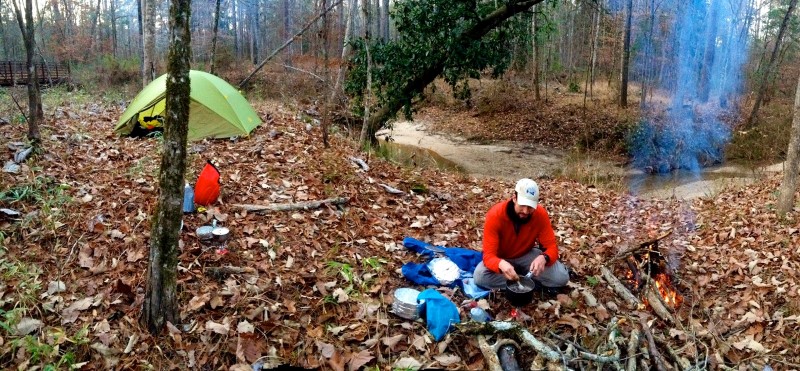
Knowing how to protect yourself outdoors and prevent parasites such as chiggers and ticks from biting you can help you enjoy your hike more. You don’t have to go home with chigger or tick bites at all. Just prepare well and be aware.